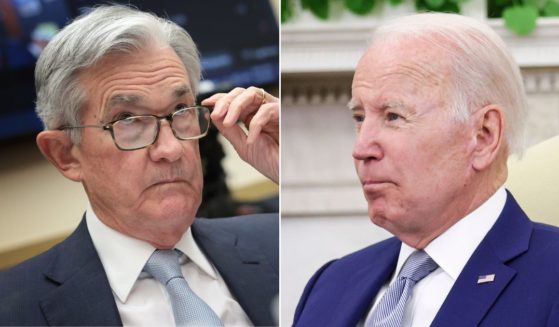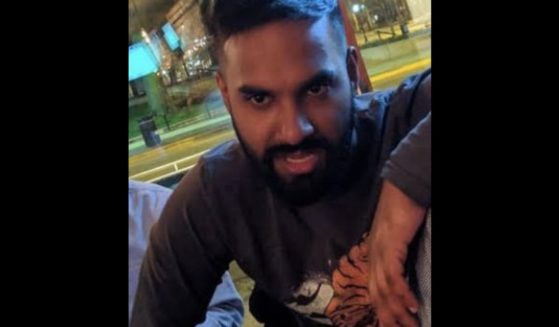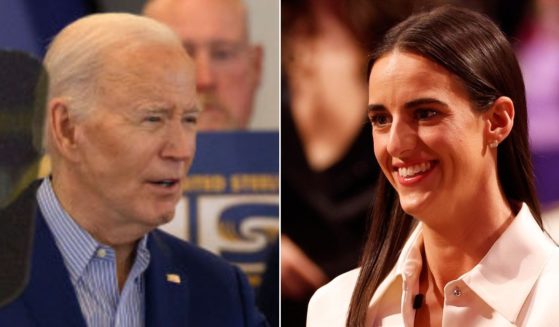Watch This Lost 1974 John Wayne Interview Before YouTube Censors It
The staff of The Western Journal is working a reduced schedule over Easter weekend to allow our employees the opportunity for rest and worship with their families if they so choose. We are re-publishing this article as a service to our readers, who reacted strongly to it when it first ran.
John Wayne was the veritable epitome of the man’s man, an ultra-patriotic embodiment of masculinity who was incredibly unabashed in his Americanism and love of tradition.
A foreign journalist interviewed “the Duke” in 1974, five years before his death, and the video has been garnering some views since it was posted to YouTube two years ago — 1.2 million and counting.
However, based on the straightforward manner in which Wayne answered the reporter’s questions — answers that would certainly be deemed politically incorrect by the left today — there’s no telling how much longer this short clip will remain up before the powers that be decide to toss it down the memory hole.
The Hollywood legend took on some rather touchy topics in his no-nonsense manner, including the changes brought by the women’s liberation, civil rights and racial grievance movements at the time.
To be sure, while some may disagree or even be somewhat offended with the particular wording of some of his responses — based on what is deemed allowable and offensive by the standards of the current day — there is no denying there is an element of common-sense conservatism behind most of what he said.
“We are being represented by men who are kowtowing to minorities so they can get votes,” Wayne said. “And I think it’s bad for our country, and I’m sad to see minorities make so much of themselves as a hyphenated American now.
“I wish they’d all get to thinking that they’re Americans, as they should, and as they’ve luckily been born here and couldn’t be better off in any other place — there shouldn’t be so much whining and bellyaching.”
There is no denying that certain politicians go to great lengths to pander to minorities for their votes, and the emphasis that far too many folks place on the hyphenation of their Americanism only serves to drive societal wedges among us all and perpetuate the left’s focus on identity politics.
Wayne was asked if he thought America was a “better place” after the explosive growth of the civil rights and women’s rights movements in the 1960s and ’70s.
“I’m saddened by the fact that, although we were a matriarchy, I think we will not be any longer,” he replied. “I think opening doors and tipping your hat to ladies is probably a thing of the past today. The forerunners of the women’s liberation of today have taken that feeling away from the average American man.”
The radical feminist movement of today would strongly disagree with his assertion that America was once a “matriarchy” — a social system primarily governed by females in positions of power — but in the context of the rest of his remark it was quite obvious that he was referring to the chivalrous behavior of men that placed women on pedestals and treated them as individuals worthy of respect and honor.
Asked directly about the civil rights movement, specifically with regard to the extension of certain rights minorities hadn’t always enjoyed in this country, Wayne said, “I guess that they’ve had a pretty tough break, but not quite as bad as you and your do-gooder friends would have them believe. They live as well here as they live in any other country over that 199 years (prior to receiving equal rights).
“True, I think they do have a right to more rights, but it isn’t a thing where the rest of the country should feel terribly guilty about anything because they’ve had a better life here, and their fathers and mothers, than they would’ve had anyplace else.”
Those remarks certainly wouldn’t go over well today — particularly the insinuation that minorities were better off in America than anywhere else, even as they endured slavery and limited rights for a time — but again, with all things considered, most other developed nations at the time had similar issues, while life in the undeveloped world was arguably worse.
“And I want to see them have everything,” Wayne said. “I want — I don’t squawk and crybaby and say, ‘Gee, I had to go without meals when I was 16 and 17 years old, it’s a terrible thing.’ I don’t think you should look back and whine and bellyache or try to hold somebody else guilty for everything you did.”
John Wayne might not have been able to get away with saying these same things in the same way these days — and again, considering the current delicate sensibilities of liberals today, this video may not last long online — but given his bluntly direct and fearless attitude, he very well may have still posited the same thoughts, though perhaps worded in a slightly different manner.
Truth and Accuracy
We are committed to truth and accuracy in all of our journalism. Read our editorial standards.












